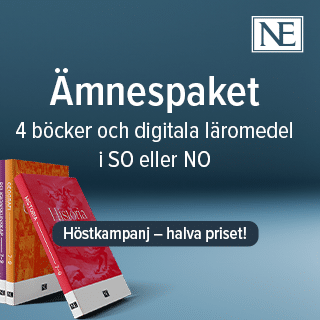”Vi får ju inte riktigt förutsättningarna för att genomföra det som vi vill”. En studie om lärares möjligheter och hinder till förändring och förbättring i praktiken
Lena Tyrén har studerat ett skolutvecklingsprojekt och vad som händer i verksamheten när datorn introduceras som ett redskap i skriv- och läslärandet med yngre skolbarn. Hon har också analyserat hur politisk och ekonomisk styrning kan inverka på ett pågående utvecklingsprojekt.
Lena Tyrén
Professor Dennis Beach, Göteborgs universitet, professor Karin Rönnerman, Göteborgs universitet
Professor Lars Holmstrand, Linnéuniversitetet
Göteborgs universitet
2013-06-14
”Vi får ju inte riktigt förutsättningarna för att genomföra det som vi vill.” – En studie om lärares möjligheter och hinder till förändring och förbättring i praktiken
We aren’t getting the conditions we need to do want we want to do: An investigation of possibilities and restraints for teachers’ who are changing and improving their practices
Institutionen för pedagogik och specialpedagogik
”Vi får ju inte riktigt förutsättningarna för att genomföra det som vi vill.” – En studie om lärares möjligheter och hinder till förändring och förbättring i praktiken
Denna studie tar sin utgångspunkt från en grupp lärare vid den kommunala grundskolan Tornskolan och deras intresse för att undersöka om det är möjligt att förändra skriv- och läslärandet genom att använda datorn som ett komplement till övriga metoder som används i undervisningen. Med denna utgångspunkt var inledningsvis det övergripande syftet att analysera och beskriva vad som sker i praktiken när lärare introducerar datorer tillsammans med de yngre skolbarnen, 6-9 år. Utvecklingsprojektet sammanföll dock med omstruktureringar och förändringar vid Tornskolan vilket fick till följd att syftet med studien också blivit att analysera och beskriva hur politisk styrning och bakomliggande samhälleliga krafter inverkat på ett pågående utvecklingsarbete. Avhandlingen visar att skolledare och lärare som arbetar med att förbättra skolan kan använda sig av aktionsforskning i förbättringsprocessen men det förutsätter att det avsätts tid för samtal och möten. Studien visar också att utvecklingen inte bör hindras av ekonomiska besparingar eller ekonomisk effektivitet. Ökad ekonomisk styrning kan vara en fara på lång sikt för effektiv skolutveckling. Att behandla tid som en extra kostnad är kontraproduktivt och det skapar ogynnsamma förutsättningar för lärare och begränsar skolutveckling. När utvecklingsarbeten planeras finns en tro och ett hopp om gynnsamma och gemensamma mål för skolutveckling. Denna studie visar att hinder uppstår som påverkar lärares möjlighet att förändra praktiken.
We aren’t getting the conditions we need to do want we want to do: An investigation of possibilities and restraints for teachers’ who are changing and improving their practices
Initially the overall aim of this thesis was to describe and analyse what was happening in the educational activities when teachers at a school that I have called Tower School introduced the computer as a tool for helping pupils who were learning to write and read. Key questions concerned the issue of improvement. Did introducing the computer as a tool in the teaching and learning process help the pupils with their learning or not and, if so, in what ways. The research approach chosen was an action research approach. Action research is concerned with professional practice and improvement. It is contextual and oriented toward action processes and change. The initial phase of the research went more or less according to plan. I followed the development process of the introduction and use of the computer as a learning tool, met regularly with the teachers and together with them developed a good working relationship. After about a year things changed. With the restructuring that was taking place in the region changes began to take place also at Tower School and this had effects on the research. In addition to the initial aim to research changes related to student learning a second purpose developed. This purpose was to describe and analyse how political governance and underlying societal forces might influence what happens in school development. There were two reasons for this new extra dimension. One was a methodological interest in relation to planning action research projects at times of political change in the education sector. The other was an educational theoretical interest connected to the school as a policy-driven organization. My interest here was for changes in the political economy at the macro level and how the network of macro-political and economic relations affected the micro-political level of the school, its classrooms, participating teachers in these classrooms, their students and me as a researcher?
Relaterade länkar

Fritidshem
 Åk F–6
Åk F–6 Matematikångest
 Åk 4–Vux
Åk 4–Vux 






